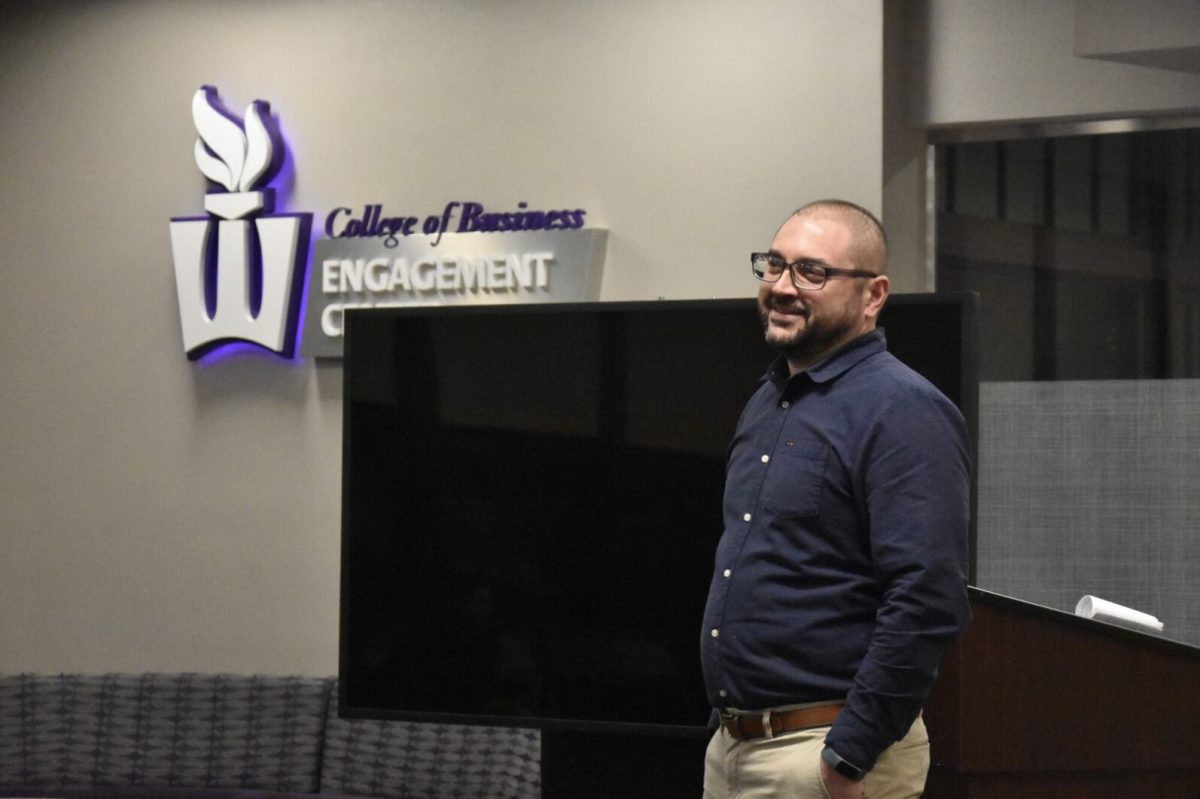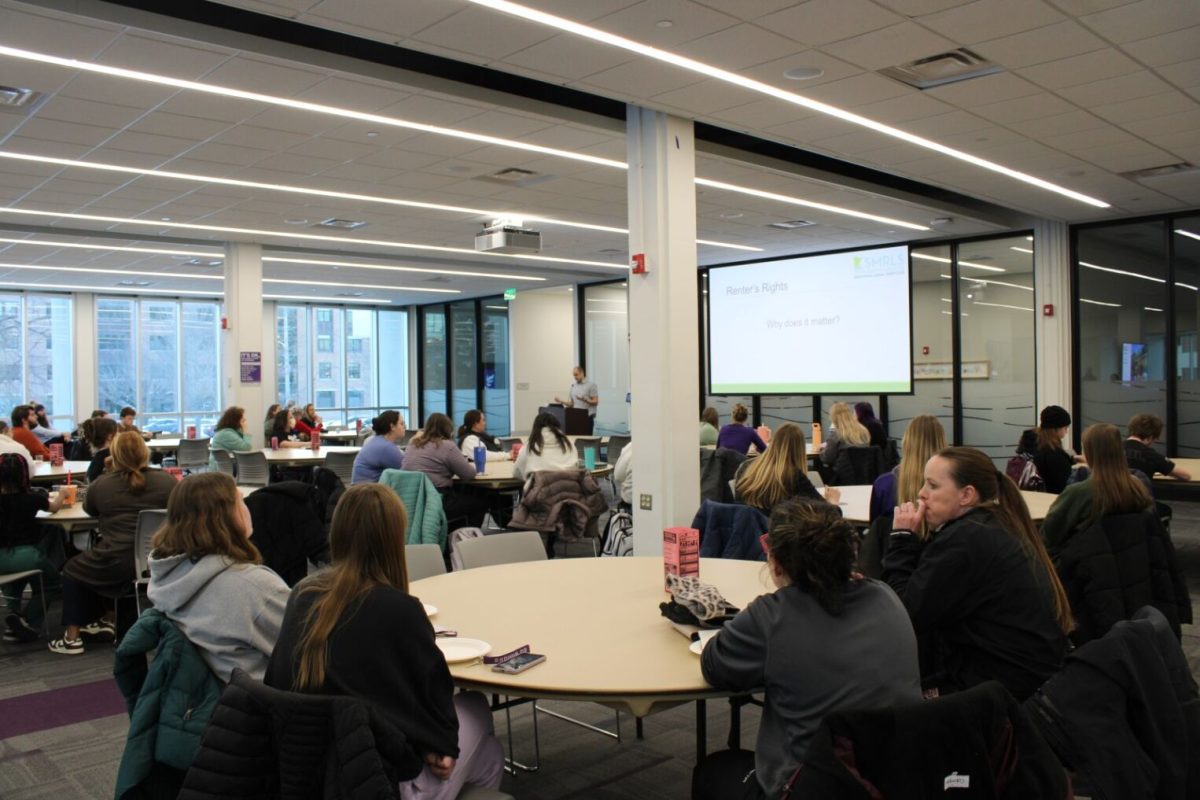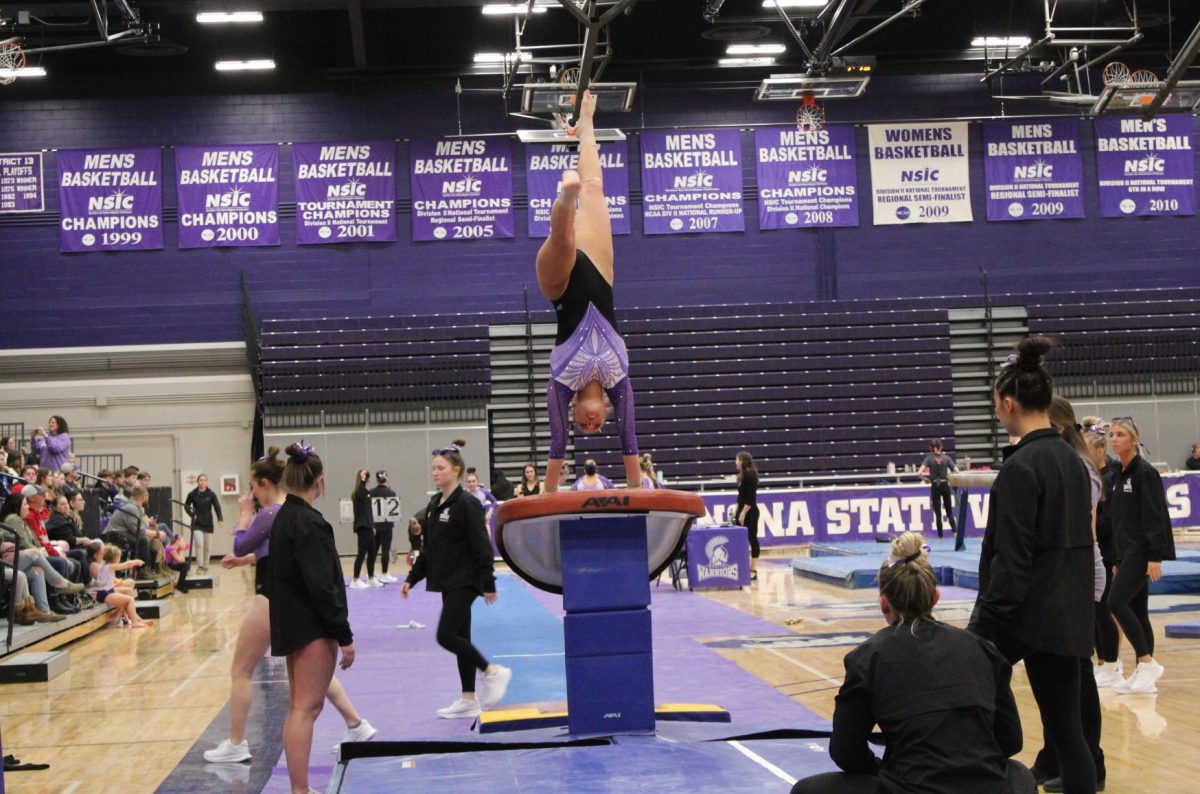Jordan Gerard/ Winonan
Winona State campus trees will be replanted due to an herbicide which killed evergreen and seedless leaves trees.
In 2010, Winona State University purchased an herbicide called Imprelis from the DuPont Company, a chemical manufacturer, to kill weeds.
Biology professor Bruno Borsari said the herbicide affects the trees on campus by not letting the tree open their buds, and therefore, they do not grow new leaves.
“Nobody knew about this,” Borsari said. “DuPont might have known better, but they might not have known with accuracy.”
Hundreds of private owners, golf courses and college campuses, including Winona State, are now ensnared in class-action lawsuits with the DuPont Company to receive compensation for the damaged trees, Borsari said.
Winona State filed the suit after the damage to the trees was done, and it should be completed soon.
Borsari said the recovery status for the damaged trees is unknown, but Winona State was warned by DuPont to not plant any trees for three years after the first application of Imprelis because the soil could still be contaminated.
Bosari said when synthetic products like herbicides, fungicides and pesticides are applied to the environment, they are designed to be effective for a certain amount of time, but over time it loses its efficiency.
Winona State environmental club member Mary Schulberg said she was not pleased with the herbicide affects.
“I am not okay with it,” Schulberg said. “I hope that WSU will consider switching to a more eco-friendly solution for this issue.”
Despite the bad herbicide, Winona State will still host its Arbor Day Celebration on Friday, April 25.
The celebration will begin at 9:30 a.m. with a planting of a shagbark tree in front of Phelps Hall.
Second grade students from Jefferson Elementary School will be planting the tree alongside Winona State environmental club.
The Richard and Moonyeen Holle Arboretum will also be dedicated during the celebration. The Holle Arboretum is to enhance education through trees for everyone, Borsari said.
Planting more trees on campus will benefit the university’s application toward becoming a “Tree Campus USA,” said Bosari.
The application is very specific about how to plant trees, what kind to plant and who will take care of them, Borsari said.
Borsari, a land steward, intends to enhance the education about trees on campus.
“My goal is to step out from the biology department and embrace why it is important that we need trees on campus,” Borsari said. “We need to find a connecting point among all majors and connect it to the trees.”









































